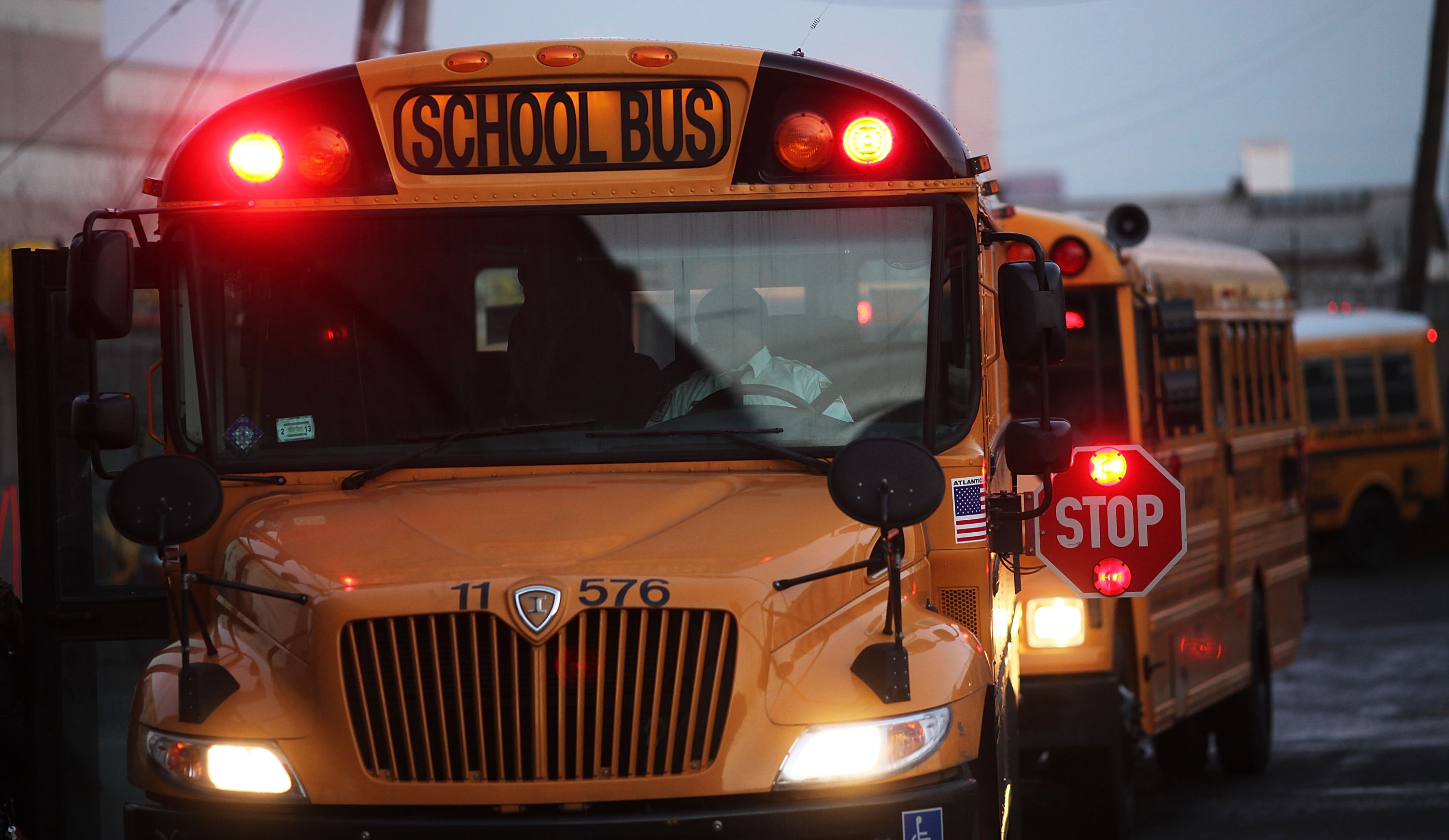In Breakthrough, NY to Bus Late-Homecoming Students

“All children have a right to safe transportation”
Bucking intense opposition by union and municipal groups, the state legislature’s budget included for the first time a mandate for public busing to ferry home New York City children who are dismissed after 4:00 p.m., providing a long-awaited relief for yeshivah parents.
The law, which was passed early Friday morning as part of the 2014 budget, was heralded as a historic breakthrough they had waited for decades to accomplish.
“It’s an evolution of something that is overdue,” Sen. Simcha Felder (D-Brooklyn), the bill’s sponsor in the Senate, told Hamodia.
“Sometimes it takes years before advocacy efforts translate into legislative success,” Rabbi Chaim Dovid Zwiebel, executive vice president of Agudath Israel, said in a statement on the “landmark” bill “putting children and safety first.”
Over the years, parents’ groups had organized to help push the issue — unsuccessfully until now.
The law would also require the buses to drop off the children, who sometimes come home when it is dark already, no farther than 600 feet away from their homes.
“This was not only a matter of safety, but of equity,” Mr. Felder said in a statement. “For far too long, the city and state have denied these students bus service, even though it would cost the city millions of dollars more if all children attended public schools.”
In the Assembly, Speaker Sheldon Silver (D-Manhattan), Assembly members Helene Weinstein, Dov Hikind, Michael Simanowitz and Philip Goldfeder, all Democrats from Brooklyn, sponsored the legislation. Ms. Weinstein said that even though the state has taken up the tab for this past year, the bill’s achievement was that they do not have to refight the battle every year.
“It is a privilege to build on our victory of last year to provide safer transportation services to yeshivah students,” said Ms. Weinstein, who was praised for her work by people involved in the legislation. “We now have a built-in formula that the state recognizes that all children have a right to safe transportation services regardless of their dismissal time.”
While the majority of the law’s current beneficiaries would be yeshivah students, with Gov. Andrew Cuomo’s budget calling for extended school days across the state, it will eventually affect public school students as well. Currently, charter schools that dismiss late, as well as some public schools in Queens that stagger their students in morning and afternoon shifts, will now be assured of public busing.
The bill’s sponsors said that they hoped to expand the 600-foot requirement to all students, attending both public and private schools.
One tidbit in the bill would remove a major hardship affecting yeshivah parents. With boys’ and girls’ school picking up their students at different bus stops, the bill allows parents to choose a single stop for all their children. That would ease the inconvenience of parents who must wait with their children at two different stops, often at the same time.
Busing students to and from schools is becoming a growing strain on city budgets: New York City, for example, pays more than $6,000 per student. Mayor Michael Bloomberg, who has led the opposition to the amendment, argued that the twin dictates of busing students after hours and dropping them off closer to their homes could cost hundreds of millions of dollars.
“The city is opposed to unfunded mandates from the state,” Mark Botnick, a spokesman for Mr. Bloomberg, told Hamodia.
However, Ms. Weinstein said that she was “dismissive of the city’s money estimates.”
“I don’t know where they get their estimates from,” she said. “There is $5.6 million that we put into the budget to help them with transportation costs.”
Mr. Felder promised that the bill will save money. He disputed Mr. Bloomberg’s figures, saying that private yeshivah buses cost thousands of dollars less than the city’s unionized bus drivers. And with Brooklyn’s urban character, he said, public busing is a safety issue.
Mr. Felder, a Democrat who caucuses with the Republican majority, touted the bill, which was also sponsored by the Chairman of the Senate Standing Committee on Education Sen. John Flanagan (R-Suffolk), Senate Majority Leader Dean Skelos (R-Rockville Centre) and Sen. Marty Golden (R-Brooklyn), as a fulfillment of his promise to help New York City’s children when he was assigned the chairmanship of the New York City education subcommittee.
While transportation, along with textbooks and security measures, has long been the exception to the constitutional ban of government funding of religious institutions, the late dismissals of yeshivos have placed a financial burden of parents who could not avail themselves of the service.
Municipality heads have long used that loophole to get out of funding after-hour transportation, and unions have balked at allowing their drivers to work after hours — or even to divert busing costs to private companies.
Rabbi Shmuel Lefkowitz, Agudath Israel’s vice president for community services, thanked the legislature and the governor’s office for enacting what he called a relief for the “long-suffering families.”
“We are grateful that the governor and the legislature recognized the pressing equity and safety concerns at stake here,” Rabbi Lefkowitz said, “and that they finally enacted these vital reforms in this year’s budget.”



This article appeared in print on page D1 of edition of Hamodia.
To Read The Full Story
Are you already a subscriber?
Click "Sign In" to log in!

Become a Web Subscriber
Click “Subscribe” below to begin the process of becoming a new subscriber.

Become a Print + Web Subscriber
Click “Subscribe” below to begin the process of becoming a new subscriber.

Renew Print + Web Subscription
Click “Renew Subscription” below to begin the process of renewing your subscription.







